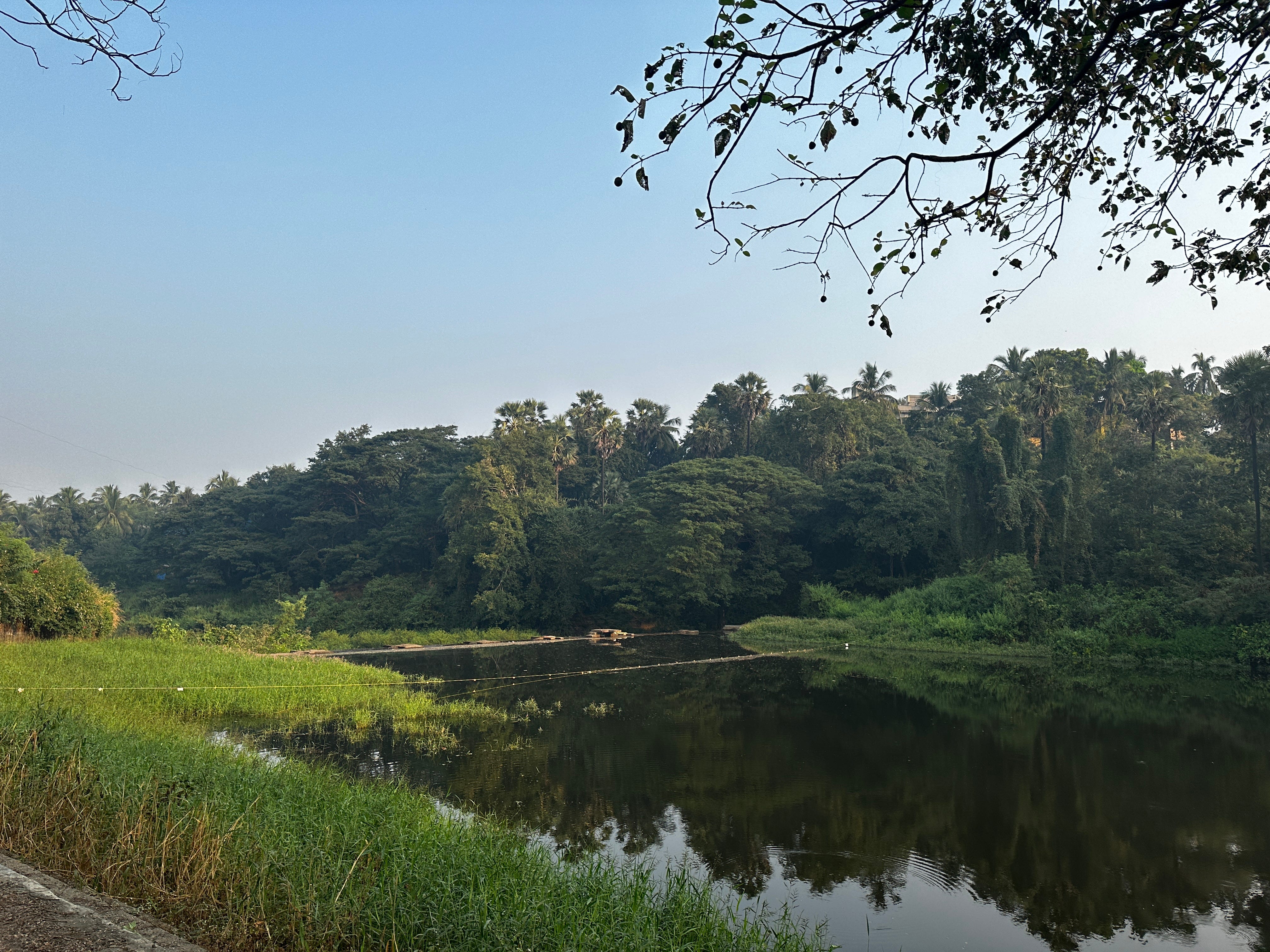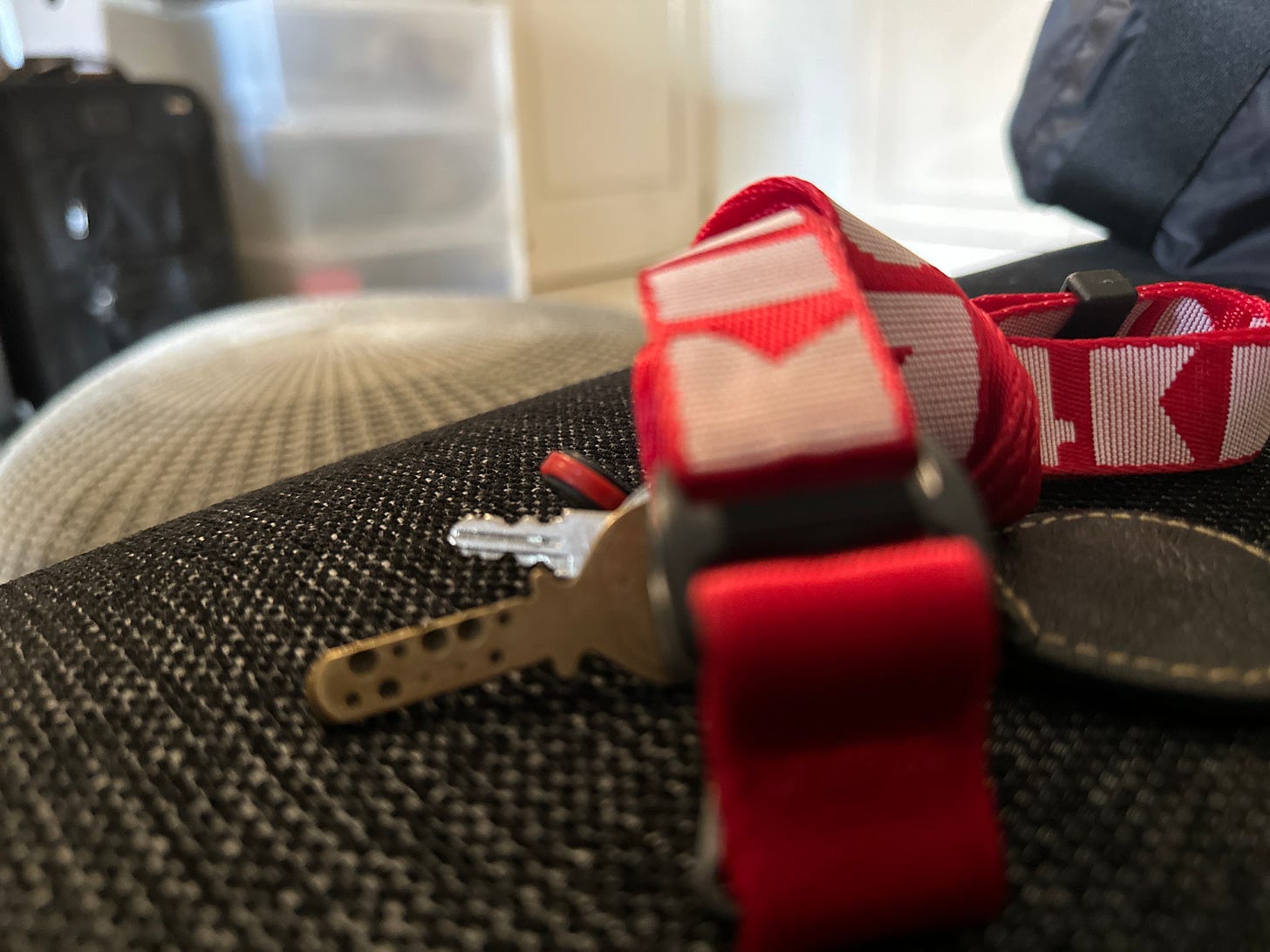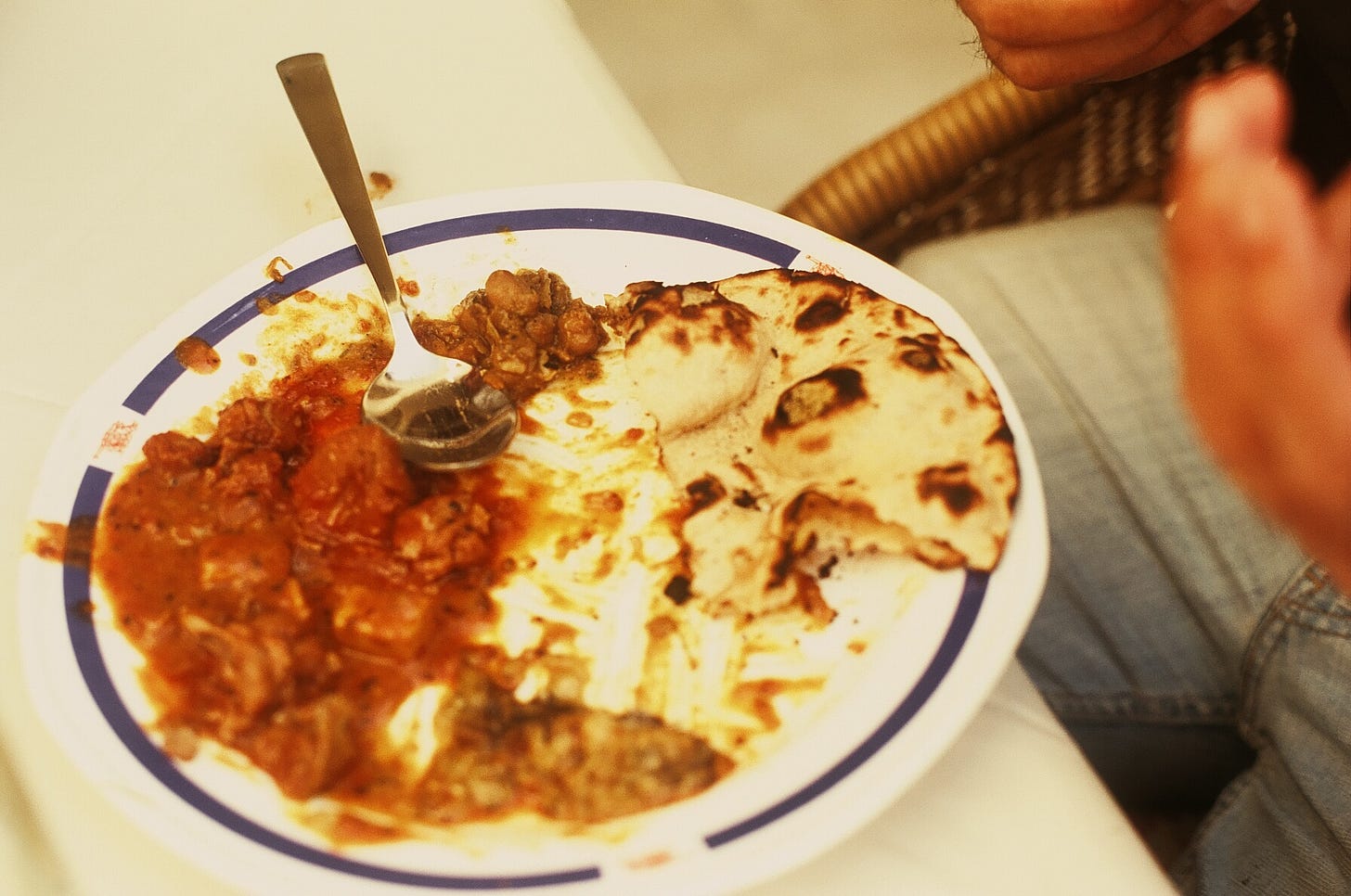Greetings dear Yet Untitler,
How are you? Hope you’ve had a fantastic week.
My week kicked off in a fine, fine way. I went here:
The amazing thing is - I didn’t even have to leave the city to come here. It’s only a 30 minute drive from home! It’s Sanjay Gandhi National Park; also known as Borivali National Park. And I’ve only been here once before.
I felt a bit cheated. I’ve lived in the Mumbai suburbs for close to 15 years, and I have completely ignored this place. I have left town, repeatedly driving over three hours to be in nature, while this amazing greenery has been so close all this time - this ecological preserve spanning 87 square kms, with a 2400 year old cave system present inside! It seems to be this well kept secret, kept mostly from me. For years I had been aware of it in peripheral vision, but lack of public information (really crap website) always made me defer this visit to the perpetual ‘later’. And then came the pandemic, etc, etc.
But last Sunday, I got off my ass and went for a long run with my runner-in-arms Sandeep. Both of us were blown away, left feeling stupid that we had not done this before.




The Buddhist parable of the missing keys
Was it only a lack of public information that kept the park hidden from me in pain sight? This modern Buddhist parable suggests otherwise.
Your keys are lost.
You look everywhere for them and eventually finding them right in front you! You did not see them even though they were there, basking in their key-existence right before your eyes. How is this possible?
According to Buddhism, you didn’t see them because your senses are deeply affected by how you think. If your mind proclaimed “I would never leave my keys in such an obvious place”, your visual apparatus would reflect this thinking in the information it relays to your brain. In other words - our state of life controls our perception by regulating our senses. I believe it - our sense of sight is not just an organ, it’s an organ + a mind.
To me, this is an enigmatic yet satisfactory explanation for why things turn technicolour when you’re in love. And why you don’t see the keys despite them being right there in front of you.
Buddhism singles out Delusion as the overall culprit - the “fundamental darkness” that clouds our perception and makes us see reality all wonky. Good deeds; working for the happiness of others - “Bodhisattva work” - helps rids life of delusion. According to Buddhism, life comes through clearly when our mirror is polished by operating in the realm of learning, realisation and compassion. All this, Buddhism says, is necessary for our life to reflect reality accurately back at us.
A Flood of Openings
What’s interesting to me is that this sudden park discovery didn’t happen in isolation. More additional, accompanying epiphanies that took place in the past weeks. Read while imagining an aria of operatic angels singing behind you, like this Cherub behind Vani and me in Florence, c. 2011!
I made a food choice that left me feeling lighter and more awake in the afternoons, granting me almost a full extra hour of daytime productivity.
I refreshed myself with the basics of Bullet Journaling by opting for the very useful BuJo course, which really streamlined my thinking and aligned my days to larger, long term goals.
Like the park - both these choices had occupied my peripheral vision for a long time. I can’t tell you how many afternoons of gassy, food stupors I went through, thinking that I needed to reassess my daytime eating habits. I can’t emphasise enough that for a long time I knew I could think better about all the work I’ve taken on; that I’m not making informed choices the way I'd like to.
During this ‘long time’, I never took corrective action, despite wanting to.
Then, suddenly, I took decisive, corrective action on all three fronts at once - running in the park, changing an eating habit and optimising my thinking process. All three things significantly impacted my life for the better. They made me feel stronger, lighter and and more confident.
What happened? What changed?
“The Art of Noticing”
Rob Walker wrote this great book about practices to cultivate ‘noticing’. Its byline is
Rediscover what really matters to you.
He also says:
Every day is filled with opportunities to be amazed, surprised, enthralled - to experience the enchanting everyday. To stay eager. To be, in a word, alive.
I’ve been reading his prescribed exercises (there are 133 of them in the book) that help us snap out of robotic repetition and start to see and in the process chance on the things our life needs.
But we spend most of our time in familiar places that have lost their inherent novelty. We take these surroundings for granted and we stop paying close attention. A recurring commute becomes profoundly numbing. Psychologists who study perception call this phenomenon inattentional blindness.
The exercises change how you see. They snap you out if this inattentional blindness. They’re playful, they’re eccentric but they’re effective.
While I highly recommend the book, but I hadn’t been following Walker’s prescriptions in the run-up to my epiphanies. But I must have been doing something in the same vein. What was it?
Whatever it was that I did, going by the parable of the keys, it ended up running a sponge full of lemony, heavy-duty cleaning fluid over my deluded senses that let in the light.
Now, with you, I’m trying to identify this sponge. I feel it’s important.
Many little sponges
It’s been hard to identify one sponge. Perhaps it was many little Spongebobs, dressed in Mario and Luigi dungarees who descended on my inner life and got to work, scrubbing delusion away (so cute!)
This image feels closer to the truth - that I reached a tipping point of sorts because of many causes. For the last straw to break the camel’s back, there needs to be an accumulation of straws first.
Here’s what I think contributed:
Writing Yet Untitled - Fo sho, bro! Because I need to belt out one of ‘em every week, I need to look to find the next instalment. I realise now how valuable a gift this is.
Bullet Journaling - So much runs through all our minds all the time. BuJo has taught me to segregate all this traffic broadly into Tasks, Thoughts and Events; rapidly log them and institute an efficient practice of reflection where essentially each of these is sorted and put in the right place, to being actioned or discarded.
Prayer - My Buddhist practice emphasises that “action without prayer is unfocused; and prayer without action is hollow.” I take this seriously. I am grateful that over my years of practice I see prayer less and less as an abstraction and more and more as a tangible way of seeing our life clearly, and acting upon what we get from this clarity.
It’s worth mentioning that the “opening up" resulting from the three significant and impactful choices I mention above, though it felt sudden and natural, came after six years of Buddhist practice, four years of bullet journaling and coming up to a year of Substacking. But let me tell you…
…it’s worth it!
What does this tell me? It tells me that, right now, in front of me there is so much valuable stuff hidden in pain sight! It kind of charges up the present moment in ways I could never imagine! It really makes me want to keep going with whatever I’m doing - opening up and unlocking the present more and more.
Exciting? Daunting?
A bit of both.
Before you go…
Speaking of ‘tipping points’, ever seen “The Way Things Go”? The trashy EDM score was added later. I’d mute it.
PS
No backs were broken. No camels were harmed in the writing of this newsletter.
PPS
If you vibed with this instalment, then you’ll likely vibe with this one from a couple of weeks ago, which almost feels like a Part I to this present post:
PPPS
What keeps you awake and noticing?
Tell me. I want to know!









I like the idea that you can't see it until you are ready for it. That's how I think about things I buy but then I don't get to for a while. I often find they are just there waiting for me when I'm ready. Sometimes it's years!